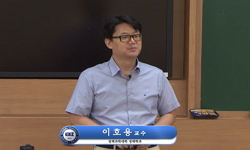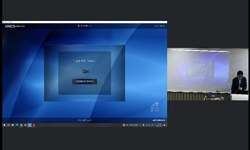The purpose of Administrative Litigation Act (ALA) is, through administrative litigation procedures, to protect adversely affected or aggrieved people by unlawful actions of administrative agencies or an action or inaction of public authority, and to ...
http://chineseinput.net/에서 pinyin(병음)방식으로 중국어를 변환할 수 있습니다.
변환된 중국어를 복사하여 사용하시면 됩니다.
- 中文 을 입력하시려면 zhongwen을 입력하시고 space를누르시면됩니다.
- 北京 을 입력하시려면 beijing을 입력하시고 space를 누르시면 됩니다.
https://www.riss.kr/link?id=A107843885
- 저자
- 발행기관
- 학술지명
- 권호사항
-
발행연도
2021
-
작성언어
-
-
주제어
거부처분 ; 신청권 ; 조리상 신청권 ; 처분성 ; 행정소송 ; final agency action of denial ; denial ; qualification ; social norms ; disposition ; administrative litigation
-
KDC
300
-
등재정보
KCI등재
-
자료형태
학술저널
-
수록면
147-180(34쪽)
-
KCI 피인용횟수
0
- DOI식별코드
- 제공처
- 소장기관
-
0
상세조회 -
0
다운로드
부가정보
다국어 초록 (Multilingual Abstract)
Putting aside dissatisfaction of win or lose, it has been pointed out as a problem whether an aggrieved party is qualified to seek relief in the court and the matter of qualification has not been supported by people. The court has tried to loose such qualification at least in nominal by various interpretations of statutory provisions but at the same time such attempts may be subject to a criticism. It is necessary to work on fundamental review of the general rights to judicial review of agency actions.
In case where people have applied to and denied by an administrative agency, followed by filing petition to and disputing with the agency, then they seek a remedy in a court. If the court dismisses the case by saying that it is a denial of the agency but it is not a “final agency action of denial” because the petitioner has not been entitled to appeal against the agency on certain matters, or if the court accepts to decide the case by saying that it is subject to judicial review because of “social norms” (jori-sang in Korean), aggrieved people may get confused and become distrust court’s decision. What people want is to seek in a reviewing court whether agency’s action or inaction is right and legitimate because aggrieved people feel that they are penalized due to the agency’s action. The court should not underestimate people’s filings for judicial review, by reason of preventing people from abusing litigations or for the purpose of reducing trials of the administrative courts. Thus, it is not desirable for the court to continue determining qualification on whether denial of agency or final agency action of denial. Instead, it is advisable that the court allows more judicial reviews toward protecting aggrieved people’s right and interest in the nature of administrative litigation against agency.
The purpose of Administrative Litigation Act (ALA) is, through administrative litigation procedures, to protect adversely affected or aggrieved people by unlawful actions of administrative agencies or an action or inaction of public authority, and to ensure proper resolution of disputes over the rights based on public law or the application thereof (Article 1 of ALA). Unlike civil litigation that typically aims resolving a legal dispute between two or more individual parties, administrative litigation is a type of proceeding that is brought by an aggrieved party (mostly individual and weak party as opposed to administrative agency) to seek review of a decision by an agency who is a public body. Taking administrative litigation into consideration of an unlevel playing field, administrative litigation procedures is required to meet the aim and purpose provided in ALA.
Putting aside dissatisfaction of win or lose, it has been pointed out as a problem whether an aggrieved party is qualified to seek relief in the court and the matter of qualification has not been supported by people. The court has tried to loose such qualification at least in nominal by various interpretations of statutory provisions but at the same time such attempts may be subject to a criticism. It is necessary to work on fundamental review of the general rights to judicial review of agency actions.
In case where people have applied to and denied by an administrative agency, followed by filing petition to and disputing with the agency, then they seek a remedy in a court. If the court dismisses the case by saying that it is a denial of the agency but it is not a “final agency action of denial” because the petitioner has not been entitled to appeal against the agency on certain matters, or if the court accepts to decide the case by saying that it is subject to judicial review because of “social norms” (jori-sang in Korean), aggrieved people may get confused and become distrust court’s decision. What people want is to seek in a reviewing court whether agency’s action or inaction is right and legitimate because aggrieved people feel that they are penalized due to the agency’s action. The court should not underestimate people’s filings for judicial review, by reason of preventing people from abusing litigations or for the purpose of reducing trials of the administrative courts. Thus, it is not desirable for the court to continue determining qualification on whether denial of agency or final agency action of denial. Instead, it is advisable that the court allows more judicial reviews toward protecting aggrieved people’s right and interest in the nature of administrative litigation against agency.
참고문헌 (Reference)
1 최민호, "환경판례백선" 한국환경법학회, 대법원 환경법연구회 2019
2 조용호, "행정판례평선" 한국행정판례연구회 2016
3 박정훈, "행정소송의 구조와 기능" 박영사 2006
4 정하중, "행정법개론" 법문사 2015
5 박균성, "행정법강의" 박영사 2019
6 김철용, "행정법 Ⅰ" 박영사 2010
7 김중권, "총장임용제청거부와 배타적 경쟁자소송- 대법원 2018. 6. 15. 선고 2016두57564 판결 -" 법조협회 68 (68): 459-477, 2019
8 최계영, "용도폐지된 공공시설에 대한 무상양도신청거부의 처분성" 행정법이론실무학회 14 : 421-442, 2005
9 홍정선, "신행정법특강" 박영사 2017
10 대법원, "사법연감"
1 최민호, "환경판례백선" 한국환경법학회, 대법원 환경법연구회 2019
2 조용호, "행정판례평선" 한국행정판례연구회 2016
3 박정훈, "행정소송의 구조와 기능" 박영사 2006
4 정하중, "행정법개론" 법문사 2015
5 박균성, "행정법강의" 박영사 2019
6 김철용, "행정법 Ⅰ" 박영사 2010
7 김중권, "총장임용제청거부와 배타적 경쟁자소송- 대법원 2018. 6. 15. 선고 2016두57564 판결 -" 법조협회 68 (68): 459-477, 2019
8 최계영, "용도폐지된 공공시설에 대한 무상양도신청거부의 처분성" 행정법이론실무학회 14 : 421-442, 2005
9 홍정선, "신행정법특강" 박영사 2017
10 대법원, "사법연감"
11 노경필, "불가쟁력이 발생한 행정처분의 변경을 구할 조리상 신청권이 인정되는지 여부" 법원도서관 (68) : 2007
12 고소영, "대학의 자율성과 국립대학총장임용제도에서의 사법심사" 한국행정판례연구회 24 (24): 215-252, 2019
13 손지열, "거부처분의 행정처분성" 법원도서관 (3) : 1985
14 백윤기, "거부처분의 처분성인정요건으로서의 신청권" 행정법이론실무학회 (1) : 1997
15 이상덕, "거부처분의 처분성 인정요건으로서의 ‘신청권’ 이론에 관한 비판적 고찰" 사법발전재단 1 (1): 1053-1092, 2021
16 이은상, "거부처분에서의 신청권은 사명을 다하였는가" 행정법이론실무학회 (63) : 65-88, 2020
17 박정훈, "거부처분과 행정소송 — 도그마틱의 분별력・체계성과 다원적 비교법의 돌파력 —" 행정법이론실무학회 (63) : 1-34, 2020
18 김치환, "거부처분과 신청권" 한국행정판례연구회 23 (23): 2018
19 신상민, "處分의 變更申請權과 行政行爲의 再審査" 한국행정판례연구회 23 (23): 111-152, 2018
20 이원우, "抗告訴訟의 原告適格과 狹義의 訴의 利益 擴大를 위한 行政訴訟法 改正方案" 행정법이론실무학회 8 : 12-266, 2002
21 김중권, "國土利用計劃變更申請權의 例外的 認定의 問題點에 관한 小考" 한국행정판례연구회 10 : 21-60, 2005
22 김창조, "住民登錄番號가 意思와 無關하게 流出된 경우 條理上 住民登錄番號의 變更을 要求할 申請權의 存否" 한국행정판례연구회 23 (23): 47-91, 2018
23 정남철, "不作爲違法確認訴訟의 違法判斷 및 提訴期間" 한국행정판례연구회 17 (17): 229-270, 2012
동일학술지(권/호) 다른 논문
-
- 제주대학교 법과정책연구원
- 송에스더 ( Song Esther )
- 2021
- KCI등재
-
- 제주대학교 법과정책연구원
- 신정규 ( Shin Jung-Gyu )
- 2021
- KCI등재
-
새로운 국민소통 플랫폼으로서 청와대 국민청원 - 현황과 법제도적 개선방안을 중심으로 -
- 제주대학교 법과정책연구원
- 윤형석 ( Yoon Hyung-Seok )
- 2021
- KCI등재
-
비상시 선원의 안전을 위한 법제 정비 및 표준화 필요성 - 코로나19로 인한 선원처우 개선 방안 마련을 중심으로 -
- 제주대학교 법과정책연구원
- 이혜진 ( Lee Hye-Jin )
- 2021
- KCI등재
분석정보
인용정보 인용지수 설명보기
학술지 이력
| 연월일 | 이력구분 | 이력상세 | 등재구분 |
|---|---|---|---|
| 2026 | 평가예정 | 재인증평가 신청대상 (재인증) | |
| 2020-01-01 | 평가 | 등재학술지 유지 (재인증) |  |
| 2019-10-22 | 학회명변경 | 영문명 : Law & Policy Institute -> The Institute of Law & Policy Jeju National University |  |
| 2017-01-01 | 평가 | 등재학술지 유지 (계속평가) |  |
| 2015-04-08 | 학회명변경 | 한글명 : 법과정책연구소 -> 법과정책연구원 |  |
| 2013-01-01 | 평가 | 등재학술지 선정 (등재후보2차) |  |
| 2012-01-01 | 평가 | 등재후보 1차 PASS (등재후보1차) |  |
| 2011-10-26 | 학술지명변경 | 외국어명 : 미등록 -> Law & Policy Review |  |
| 2010-01-01 | 평가 | 등재후보학술지 선정 (신규평가) |  |
| 2008-04-02 | 학회명변경 | 한글명 : 사회과학연구소 -> 법과정책연구소영문명 : 미등록 -> Law & Policy Institute |
학술지 인용정보
| 기준연도 | WOS-KCI 통합IF(2년) | KCIF(2년) | KCIF(3년) |
|---|---|---|---|
| 2016 | 0.66 | 0.66 | 0.64 |
| KCIF(4년) | KCIF(5년) | 중심성지수(3년) | 즉시성지수 |
| 0.57 | 0.51 | 0.735 | 0.06 |




 KCI
KCI KISS
KISS







